MENU
(Nov. 6, 2015 - stories by Ralph Kurtenbach) A children’s video series featuring fingers as Old Testament characters will be dubbed into three Middle Eastern languages that will air across the region via the satellite television network, SAT-7, according to the series’ dramatic director, John Gowan.
Deditos (Little Fingers) has been produced in Guatemala since 2004. The series director, José Abel de la Cruz, is also the executive director of Asociación Viña. “He and others at Viña saw the need for children’s programming that could be used by churches with programs in Cakchiquel—one of more than 21 Mayan languages,” said Gowan who serves with his wife, Sharon, at Reach Beyond.
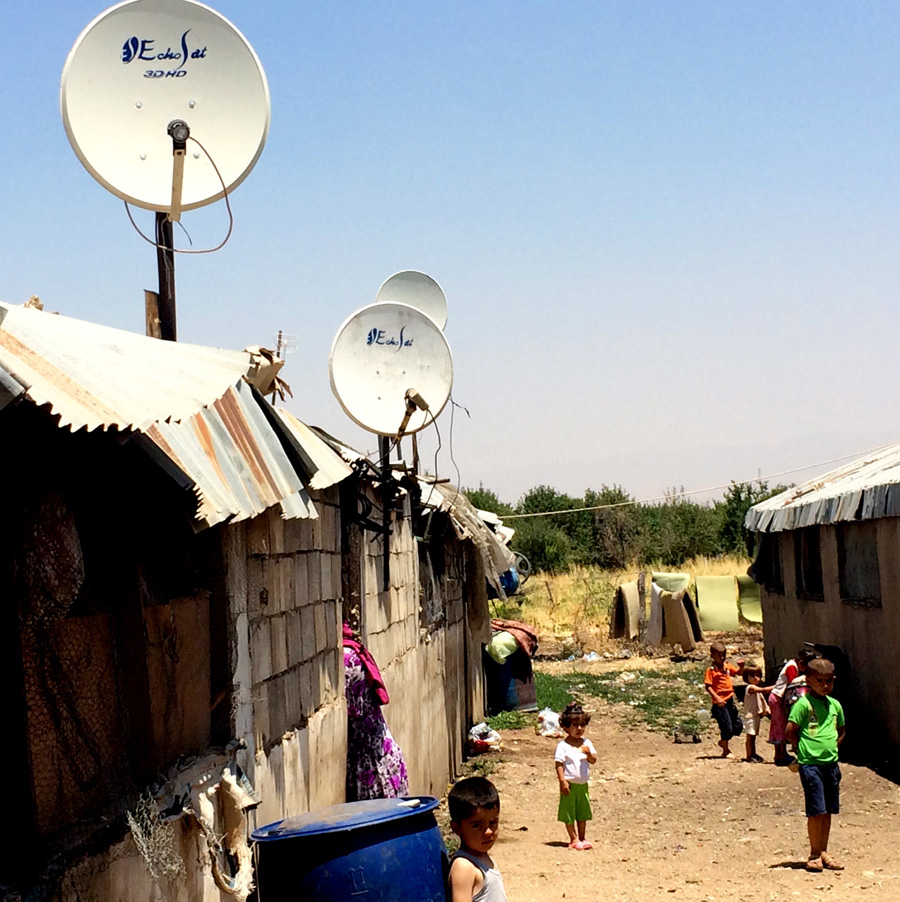 “The first episode of Deditos, ‘David and Goliath,’ was actually in Cakchiquel—not Spanish,” Gowan explained, adding that the Viña staff and board had long envisioned quality content for children in local churches.
“The first episode of Deditos, ‘David and Goliath,’ was actually in Cakchiquel—not Spanish,” Gowan explained, adding that the Viña staff and board had long envisioned quality content for children in local churches.
“The overwhelming positive response to that first pilot episode led to the realization that the series shouldn’t be limited to Cakchiquel speakers only,” Gowan continued. “So the production switched to Spanish so the series could be more easily dubbed into other Mayan languages and even be considered for local cable TV.”
This change—made prior to Gowan’s involvement (in 2009)—has proven fortuitous for his work on the project. He had grown up speaking Spanish in Ecuador, the son of Reach Beyond retirees Travis and Margaret Gowan.
Gowan initially advised de la Cruz’s staff on improvements to lighting, production and dramatic aspects of shows already produced. Then, after staff considerations, his continued guidance saw the video series rewritten, reshot and edited.
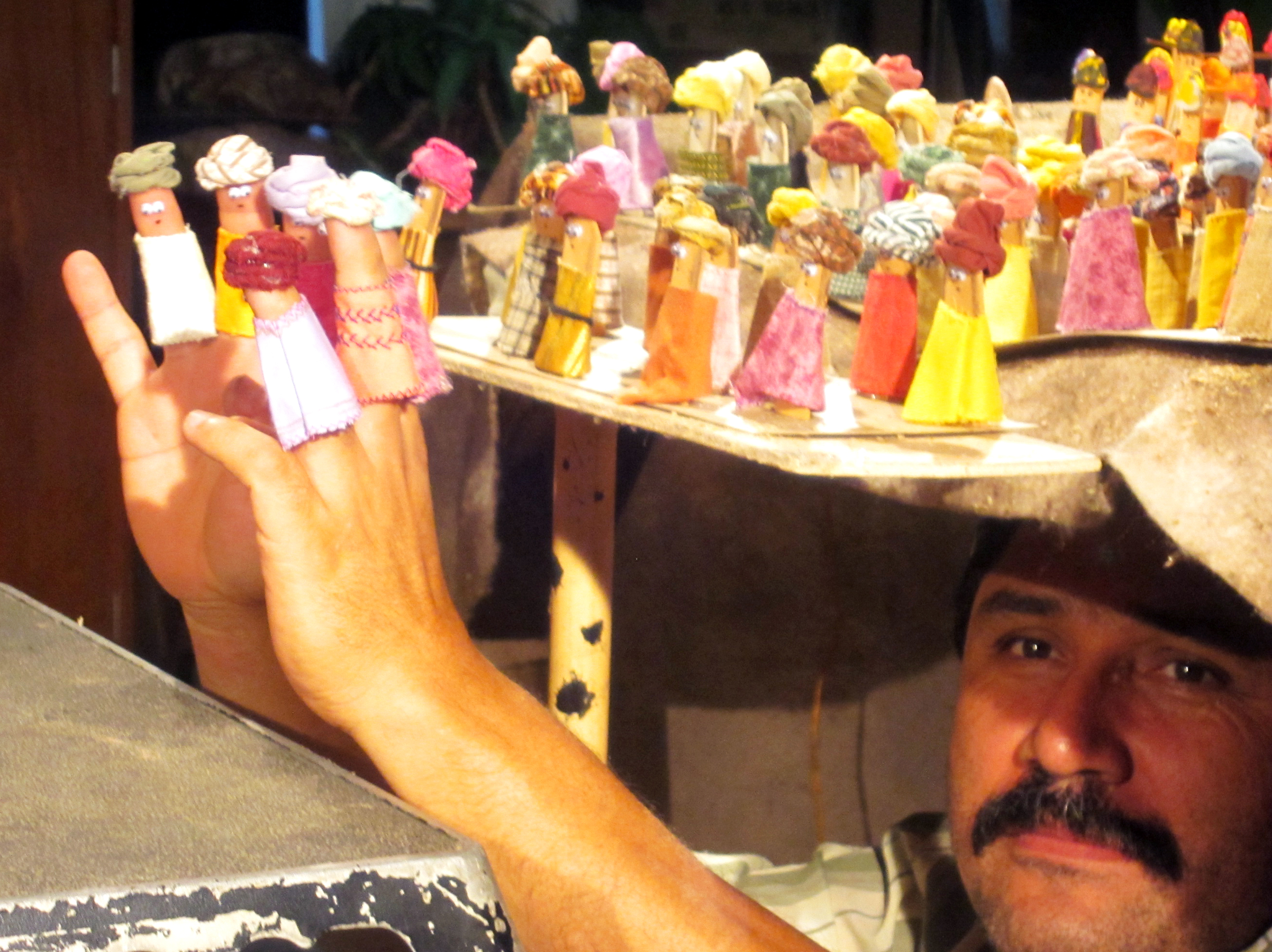 While his Spanish facilitated the training of staff members to meet video industry standards, more recently it helped him and the Viña staff to translate the script to make an English-language version of episode 7, “God and His People in the Wilderness.” It dramatizes God’s miracles among the children of Israel as they wandered and eventually entered the land that He had promised to them.
While his Spanish facilitated the training of staff members to meet video industry standards, more recently it helped him and the Viña staff to translate the script to make an English-language version of episode 7, “God and His People in the Wilderness.” It dramatizes God’s miracles among the children of Israel as they wandered and eventually entered the land that He had promised to them.
In turn, this and other episodes of Deditos are to be put into the languages of Farsi, Turkish and Arabic for international broadcasts by SAT-7, a ministry based in the Middle East. Farsi is a leading language spoken in Iran, Afghanistan and Tajikistan. SAT-7 anticipates translating all 15 programs in the series for use on the satellite network.
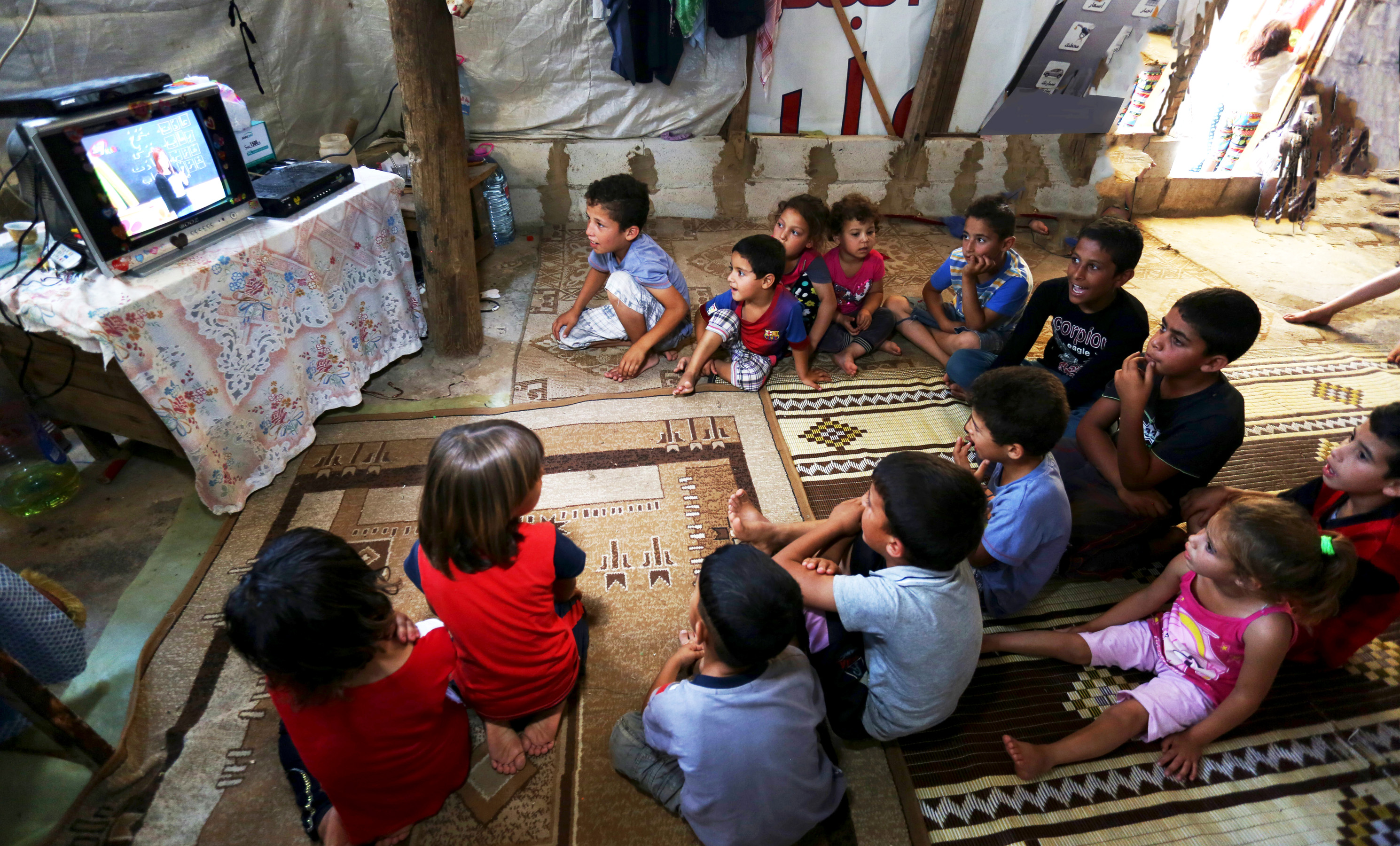 As a one-time theater performance professor at Westmont College in California, Gowan finds fulfillment as he trains minority groups wanting to dub Deditos into their own languages. Dubbing and broadcast partnership opportunities are in development for South and Central America, Mexico, Romania, Germany, Bulgaria, India, Thailand and the Philippines.
As a one-time theater performance professor at Westmont College in California, Gowan finds fulfillment as he trains minority groups wanting to dub Deditos into their own languages. Dubbing and broadcast partnership opportunities are in development for South and Central America, Mexico, Romania, Germany, Bulgaria, India, Thailand and the Philippines.
It thrills Gowan as he anticipates the series airing on “satellite broadcasts throughout the very region where the stories first happened.”
Only After In-depth Research Do Faces on Fingers Appear on the Screen
Makeup for Deditos is delightfully simple, as you only have so many ways to make a finger look like a person. “The extent of our make-up department,” says Reach Beyond’s John Gowan, “is the actor himself gluing on the two eyes and then taking a ballpoint pen and making a little scratch for a mouth. That’s it.”
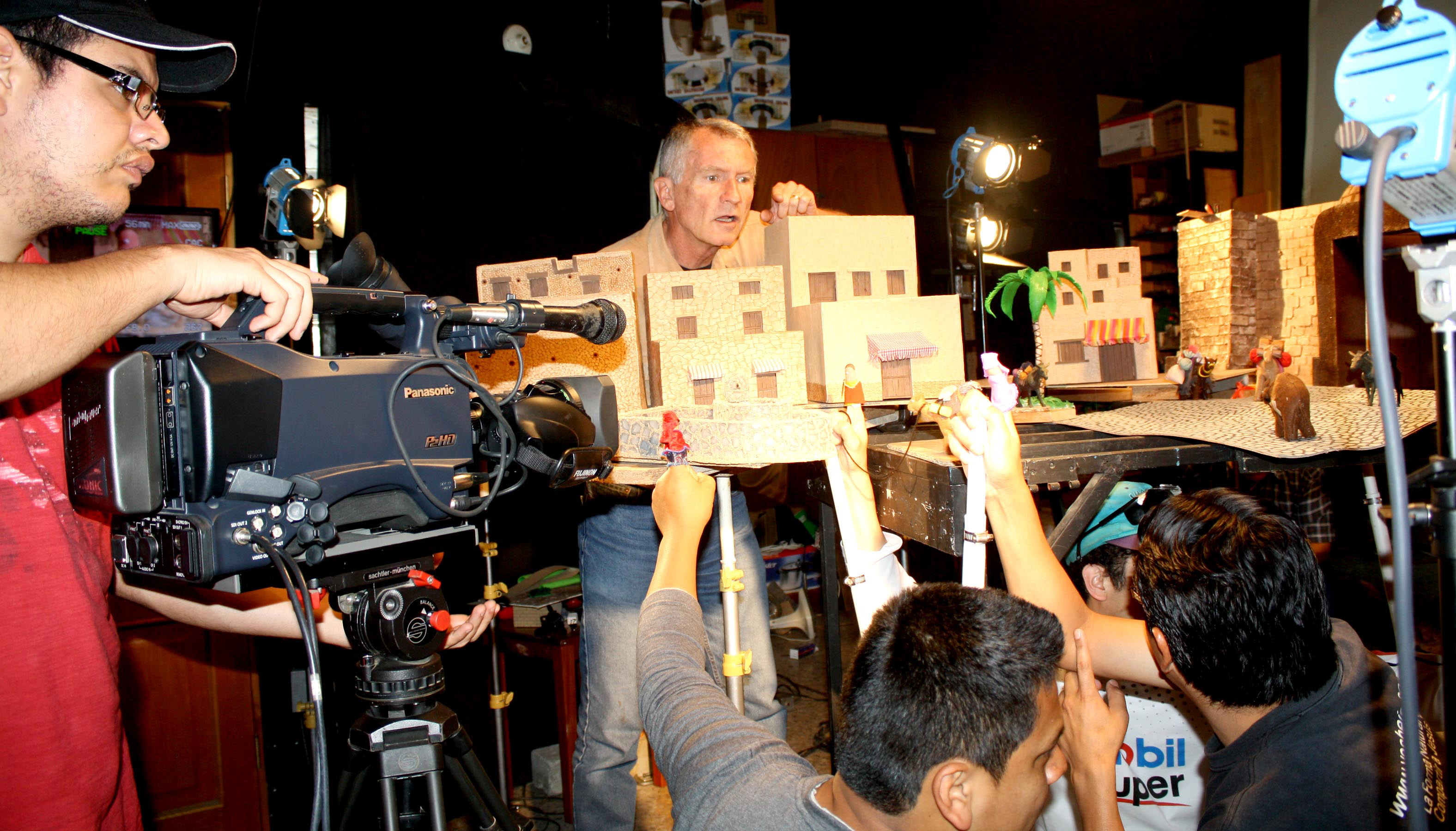 The Deditos dramatic director, Gowan also observed that under hot lights and long hours of shooting, an eye will sometimes fall off. When that is replaced, the production team is off and running again at Viña Studios in Guatemala.
The Deditos dramatic director, Gowan also observed that under hot lights and long hours of shooting, an eye will sometimes fall off. When that is replaced, the production team is off and running again at Viña Studios in Guatemala.
“The surprising part is how emotional content can depend so little on seeing a face that expresses that emotion,” said Gowan. Prior to Deditos, neither he nor the series scriptwriter, Sandra De la Torre, had worked in miniature. However, upon initial exposure, Gowan found the format’s dramatic potential as “not much different from shooting with live actors.”
The dialogue—done by individuals whose careers are not acting—is complemented by essential inputs for cinema such as “really solid scriptwriting and a good musical score, carefully crafted and edited together,” according to Gowan.
 De la Torre, a former student, employee and colleague of Gowan’s in Ecuador, has never visited the studios in Guatemala. However, she grasped the concept well after interviewing for the job and viewing videos provided by the Viña production team that show the shooting process. These help her to determine “what I can request in the script.” Finger actors, for example, cannot raise a hand to gesture or cup their hands to call out to someone.
De la Torre, a former student, employee and colleague of Gowan’s in Ecuador, has never visited the studios in Guatemala. However, she grasped the concept well after interviewing for the job and viewing videos provided by the Viña production team that show the shooting process. These help her to determine “what I can request in the script.” Finger actors, for example, cannot raise a hand to gesture or cup their hands to call out to someone.
As he works, Gowan finds the series offers high emotional and teaching impact. In each 26-minute show, Deditos depicts an epic account from the Bible’s Old Testament. David and Goliath have appeared on the screen, as have other real life characters from ancient times.
“These are not Latin American stories; these are Middle East stories,” Gowan said, continuing that “we approach these in a way that would be compatible with someone expecting to see it as a Middle East story. So we don’t throw in Guatemalan scenes or make choices for costuming or props or so forth that come out of Guatemalan history or North American history.”
The series also reflects an intentional departure from the pacing or feel of U.S.-based cinema productions—a key feature as Deditos begins enjoying broader distribution. The video series was recently picked up to be dubbed into three languages for use in the Middle East on broadcasts carried by a satellite television network, SAT-7.
 “As Westerners who have lived in the most powerful and richest countries in the world, we tend to identify with the power figures of the Bible,” said Rick McArthur, chairman of the Viña board and SIL International’s media coordinator for the Americas. “But with the principal audience of the series being young children and marginalized people groups, they might more readily identify with other characters.”
“As Westerners who have lived in the most powerful and richest countries in the world, we tend to identify with the power figures of the Bible,” said Rick McArthur, chairman of the Viña board and SIL International’s media coordinator for the Americas. “But with the principal audience of the series being young children and marginalized people groups, they might more readily identify with other characters.”
Behind the simplicity of fingers facing the camera in dialogue lie scripting complexities, sometimes as intricate as the swirls of a fingerprint. Research goes into each biblical account before any shot sheets are drawn up or the set is illuminated. Painstaking investments of time individually and corporately are involved.
The pages of Scripture serve as a resource, as do Bible commentaries and academic works on the ancient cultures of the Near East. What emerges instead of a one-dimensional cartoon character is a full-orbed figure—such as Rahab, whose family was rescued after she, exhibiting faith in God, helped the Israelite spies.
“John prefers a deeper probing, but I always lean toward not wanting to complicate the story because it’s for children, and because it is for translation into many languages,” offered De la Torre. “Grasping the story’s essence, I focus there and John prefers some depth of character.”
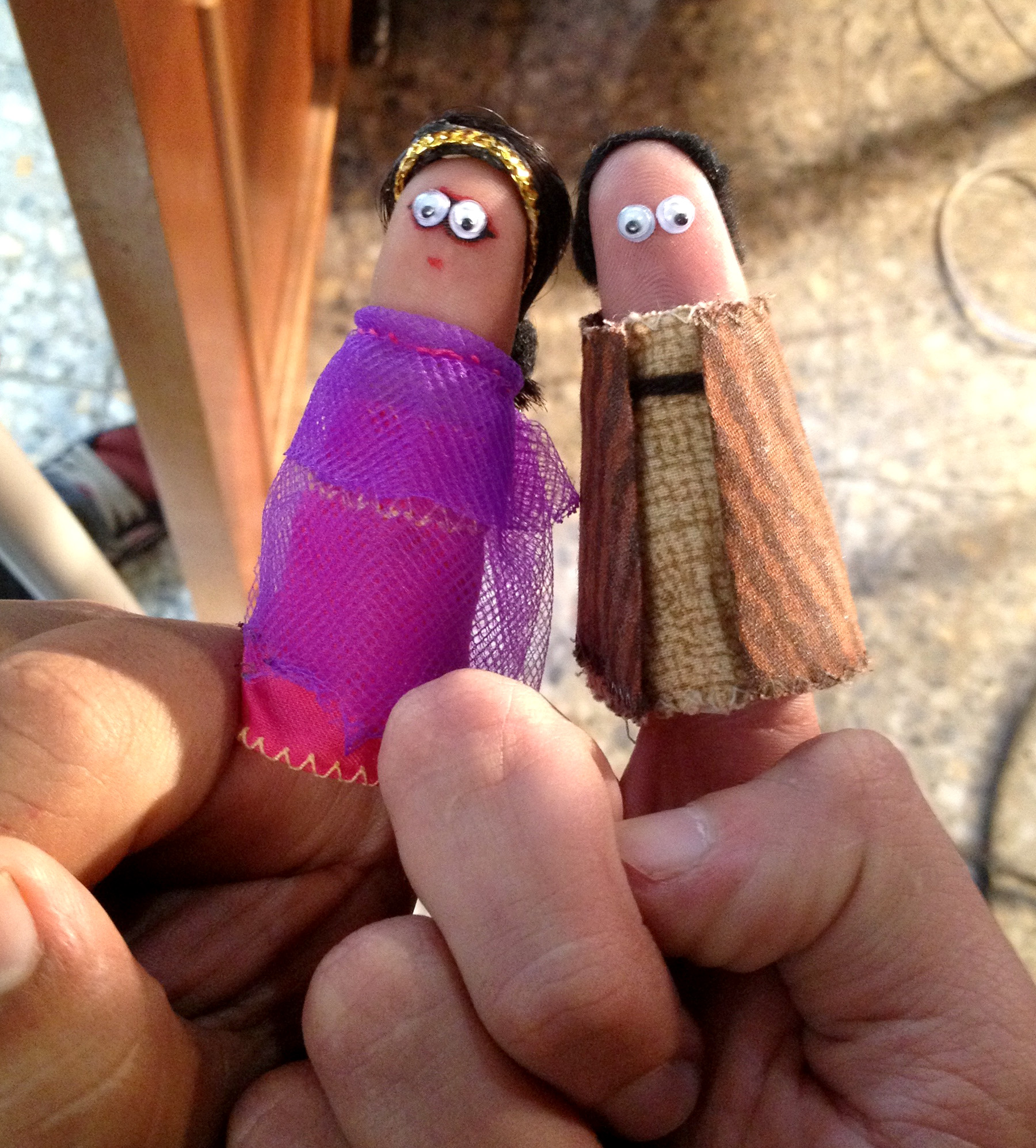 Healthy, creative sparring about the program content sometimes occurs across long distances as De la Torre and Gowan connect via the Internet. In the late 1980s she sat under Gowan’s teaching at the Quito-based Centro Cristiano de Comunicaciones (Christian Center of Communications or CCC), formerly operated by Reach Beyond in Ecuador. The relationship moved to boss/employee and then colleagues, mutually respecting each other’s viewpoints.
Healthy, creative sparring about the program content sometimes occurs across long distances as De la Torre and Gowan connect via the Internet. In the late 1980s she sat under Gowan’s teaching at the Quito-based Centro Cristiano de Comunicaciones (Christian Center of Communications or CCC), formerly operated by Reach Beyond in Ecuador. The relationship moved to boss/employee and then colleagues, mutually respecting each other’s viewpoints.
It was at Gowan’s urging that De la Torre first became involved with Deditos. A recognized poet in her own right, she said with a laugh that “John knows me, but maybe I know myself better in that I do not like any limitations.” When interviewed by Viña, she emphasized to its team that within their framework of holding to biblical integrity, Deditos needs to appeal to children.
Balancing both in another Old Testament account—that of Naaman—she said, “Yes, we’re told a powerful general was healed, but there is so much more in the Bible to look at. We need to turn it over and inspect it, as if buying an item of clothing. We need to look at the stitching.” That episode, De la Torre said, is written from the viewpoint of a slave girl in Naaman’s household.
She later put the story of the fall of Jericho into an account of Rahab, going a bit beyond the mere 10 biblical references to Rahab. “But generally, the Biblicist [at Viña] never said, ‘You’ve gone too far’ or ‘This is way off from the biblical text.’ No, he approved much of what I created—because I had to employ imagination—and said, ‘This is good and coherent with what we know of the biblical text,’ and so we could move on with the team confident in my writing, which added a bit.”
De la Torre confronted a personal crisis when she surmised that some viewers might perceive God as partial to one ethnic group or nation in light of contemporary tensions in the Middle East. She felt strongly enough on this to offer to withdraw her name from the credits. But after discussing the matter, she said Gowan helped ease her burden, saying that after the team’s due diligence in research to avoid extra-biblical favoritism, they could leave the issue with viewers.
Every answer is not given in Deditos, and Gowan does not pretend otherwise when queried on matters such as the creation story. As the mentor and dramatic director, he describes his goal as “to represent the story, as told in Scripture.”
“When there are places in Scripture that produce controversy—like that of the six days of creation,” Gowan continued, “I would hope that anybody … seeing Deditos could recognize that same controversy. In other words, try to be true to the way the Bible presents it, including the potential for controversy, without definitively resolving that controversy any further than Scripture itself does.”
More information is available on the website www.deditos.org, including Spanish-language Deditos episodes with English subtitles.
Source: Reach Beyond
Deditos (Little Fingers) has been produced in Guatemala since 2004. The series director, José Abel de la Cruz, is also the executive director of Asociación Viña. “He and others at Viña saw the need for children’s programming that could be used by churches with programs in Cakchiquel—one of more than 21 Mayan languages,” said Gowan who serves with his wife, Sharon, at Reach Beyond.
 “The first episode of Deditos, ‘David and Goliath,’ was actually in Cakchiquel—not Spanish,” Gowan explained, adding that the Viña staff and board had long envisioned quality content for children in local churches.
“The first episode of Deditos, ‘David and Goliath,’ was actually in Cakchiquel—not Spanish,” Gowan explained, adding that the Viña staff and board had long envisioned quality content for children in local churches.“The overwhelming positive response to that first pilot episode led to the realization that the series shouldn’t be limited to Cakchiquel speakers only,” Gowan continued. “So the production switched to Spanish so the series could be more easily dubbed into other Mayan languages and even be considered for local cable TV.”
This change—made prior to Gowan’s involvement (in 2009)—has proven fortuitous for his work on the project. He had grown up speaking Spanish in Ecuador, the son of Reach Beyond retirees Travis and Margaret Gowan.
Gowan initially advised de la Cruz’s staff on improvements to lighting, production and dramatic aspects of shows already produced. Then, after staff considerations, his continued guidance saw the video series rewritten, reshot and edited.
 While his Spanish facilitated the training of staff members to meet video industry standards, more recently it helped him and the Viña staff to translate the script to make an English-language version of episode 7, “God and His People in the Wilderness.” It dramatizes God’s miracles among the children of Israel as they wandered and eventually entered the land that He had promised to them.
While his Spanish facilitated the training of staff members to meet video industry standards, more recently it helped him and the Viña staff to translate the script to make an English-language version of episode 7, “God and His People in the Wilderness.” It dramatizes God’s miracles among the children of Israel as they wandered and eventually entered the land that He had promised to them.In turn, this and other episodes of Deditos are to be put into the languages of Farsi, Turkish and Arabic for international broadcasts by SAT-7, a ministry based in the Middle East. Farsi is a leading language spoken in Iran, Afghanistan and Tajikistan. SAT-7 anticipates translating all 15 programs in the series for use on the satellite network.
 As a one-time theater performance professor at Westmont College in California, Gowan finds fulfillment as he trains minority groups wanting to dub Deditos into their own languages. Dubbing and broadcast partnership opportunities are in development for South and Central America, Mexico, Romania, Germany, Bulgaria, India, Thailand and the Philippines.
As a one-time theater performance professor at Westmont College in California, Gowan finds fulfillment as he trains minority groups wanting to dub Deditos into their own languages. Dubbing and broadcast partnership opportunities are in development for South and Central America, Mexico, Romania, Germany, Bulgaria, India, Thailand and the Philippines.It thrills Gowan as he anticipates the series airing on “satellite broadcasts throughout the very region where the stories first happened.”
Only After In-depth Research Do Faces on Fingers Appear on the Screen
Makeup for Deditos is delightfully simple, as you only have so many ways to make a finger look like a person. “The extent of our make-up department,” says Reach Beyond’s John Gowan, “is the actor himself gluing on the two eyes and then taking a ballpoint pen and making a little scratch for a mouth. That’s it.”
 The Deditos dramatic director, Gowan also observed that under hot lights and long hours of shooting, an eye will sometimes fall off. When that is replaced, the production team is off and running again at Viña Studios in Guatemala.
The Deditos dramatic director, Gowan also observed that under hot lights and long hours of shooting, an eye will sometimes fall off. When that is replaced, the production team is off and running again at Viña Studios in Guatemala.“The surprising part is how emotional content can depend so little on seeing a face that expresses that emotion,” said Gowan. Prior to Deditos, neither he nor the series scriptwriter, Sandra De la Torre, had worked in miniature. However, upon initial exposure, Gowan found the format’s dramatic potential as “not much different from shooting with live actors.”
The dialogue—done by individuals whose careers are not acting—is complemented by essential inputs for cinema such as “really solid scriptwriting and a good musical score, carefully crafted and edited together,” according to Gowan.
 De la Torre, a former student, employee and colleague of Gowan’s in Ecuador, has never visited the studios in Guatemala. However, she grasped the concept well after interviewing for the job and viewing videos provided by the Viña production team that show the shooting process. These help her to determine “what I can request in the script.” Finger actors, for example, cannot raise a hand to gesture or cup their hands to call out to someone.
De la Torre, a former student, employee and colleague of Gowan’s in Ecuador, has never visited the studios in Guatemala. However, she grasped the concept well after interviewing for the job and viewing videos provided by the Viña production team that show the shooting process. These help her to determine “what I can request in the script.” Finger actors, for example, cannot raise a hand to gesture or cup their hands to call out to someone.As he works, Gowan finds the series offers high emotional and teaching impact. In each 26-minute show, Deditos depicts an epic account from the Bible’s Old Testament. David and Goliath have appeared on the screen, as have other real life characters from ancient times.
“These are not Latin American stories; these are Middle East stories,” Gowan said, continuing that “we approach these in a way that would be compatible with someone expecting to see it as a Middle East story. So we don’t throw in Guatemalan scenes or make choices for costuming or props or so forth that come out of Guatemalan history or North American history.”
The series also reflects an intentional departure from the pacing or feel of U.S.-based cinema productions—a key feature as Deditos begins enjoying broader distribution. The video series was recently picked up to be dubbed into three languages for use in the Middle East on broadcasts carried by a satellite television network, SAT-7.
 “As Westerners who have lived in the most powerful and richest countries in the world, we tend to identify with the power figures of the Bible,” said Rick McArthur, chairman of the Viña board and SIL International’s media coordinator for the Americas. “But with the principal audience of the series being young children and marginalized people groups, they might more readily identify with other characters.”
“As Westerners who have lived in the most powerful and richest countries in the world, we tend to identify with the power figures of the Bible,” said Rick McArthur, chairman of the Viña board and SIL International’s media coordinator for the Americas. “But with the principal audience of the series being young children and marginalized people groups, they might more readily identify with other characters.”Behind the simplicity of fingers facing the camera in dialogue lie scripting complexities, sometimes as intricate as the swirls of a fingerprint. Research goes into each biblical account before any shot sheets are drawn up or the set is illuminated. Painstaking investments of time individually and corporately are involved.
The pages of Scripture serve as a resource, as do Bible commentaries and academic works on the ancient cultures of the Near East. What emerges instead of a one-dimensional cartoon character is a full-orbed figure—such as Rahab, whose family was rescued after she, exhibiting faith in God, helped the Israelite spies.
“John prefers a deeper probing, but I always lean toward not wanting to complicate the story because it’s for children, and because it is for translation into many languages,” offered De la Torre. “Grasping the story’s essence, I focus there and John prefers some depth of character.”
 Healthy, creative sparring about the program content sometimes occurs across long distances as De la Torre and Gowan connect via the Internet. In the late 1980s she sat under Gowan’s teaching at the Quito-based Centro Cristiano de Comunicaciones (Christian Center of Communications or CCC), formerly operated by Reach Beyond in Ecuador. The relationship moved to boss/employee and then colleagues, mutually respecting each other’s viewpoints.
Healthy, creative sparring about the program content sometimes occurs across long distances as De la Torre and Gowan connect via the Internet. In the late 1980s she sat under Gowan’s teaching at the Quito-based Centro Cristiano de Comunicaciones (Christian Center of Communications or CCC), formerly operated by Reach Beyond in Ecuador. The relationship moved to boss/employee and then colleagues, mutually respecting each other’s viewpoints.It was at Gowan’s urging that De la Torre first became involved with Deditos. A recognized poet in her own right, she said with a laugh that “John knows me, but maybe I know myself better in that I do not like any limitations.” When interviewed by Viña, she emphasized to its team that within their framework of holding to biblical integrity, Deditos needs to appeal to children.
Balancing both in another Old Testament account—that of Naaman—she said, “Yes, we’re told a powerful general was healed, but there is so much more in the Bible to look at. We need to turn it over and inspect it, as if buying an item of clothing. We need to look at the stitching.” That episode, De la Torre said, is written from the viewpoint of a slave girl in Naaman’s household.
She later put the story of the fall of Jericho into an account of Rahab, going a bit beyond the mere 10 biblical references to Rahab. “But generally, the Biblicist [at Viña] never said, ‘You’ve gone too far’ or ‘This is way off from the biblical text.’ No, he approved much of what I created—because I had to employ imagination—and said, ‘This is good and coherent with what we know of the biblical text,’ and so we could move on with the team confident in my writing, which added a bit.”
De la Torre confronted a personal crisis when she surmised that some viewers might perceive God as partial to one ethnic group or nation in light of contemporary tensions in the Middle East. She felt strongly enough on this to offer to withdraw her name from the credits. But after discussing the matter, she said Gowan helped ease her burden, saying that after the team’s due diligence in research to avoid extra-biblical favoritism, they could leave the issue with viewers.
Every answer is not given in Deditos, and Gowan does not pretend otherwise when queried on matters such as the creation story. As the mentor and dramatic director, he describes his goal as “to represent the story, as told in Scripture.”
“When there are places in Scripture that produce controversy—like that of the six days of creation,” Gowan continued, “I would hope that anybody … seeing Deditos could recognize that same controversy. In other words, try to be true to the way the Bible presents it, including the potential for controversy, without definitively resolving that controversy any further than Scripture itself does.”
More information is available on the website www.deditos.org, including Spanish-language Deditos episodes with English subtitles.
Source: Reach Beyond
